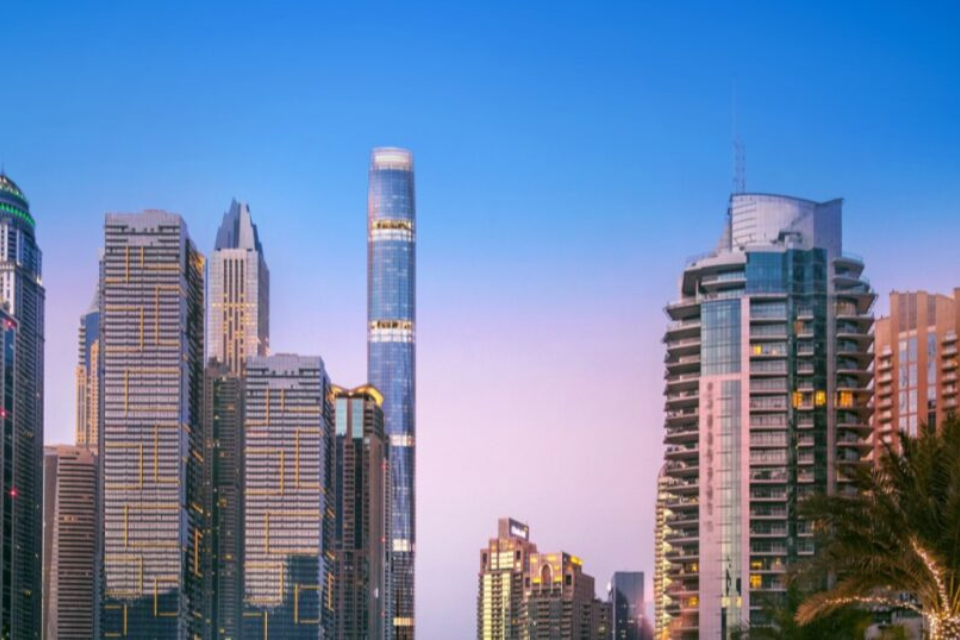This is an age-old question posed by every adult; should I buy or Renting Property in Dubai? This is followed by questions such as “Is a mortgage cheaper than rent?”, “What kind of property should I look into?”, etc.
The UAE real estate market is no stranger to such questions. While the country’s real estate market has expanded and thrived significantly over the past few years, potential renters/buyers must consider various factors before making an informed decision. This article will explore subjects such as the pros and cons of renting versus mortgaging properties in the UAE, market analysis, financial analysis, and property ownership laws to help you decide which option you should opt for.
Factors to consider: Buying vs. Renting Property in Dubai
From your finances and budget to your long-term residency plans, there are several facets that you must plan out before taking the big step of either renting or buying a property in the UAE. Here are a few factors to consider before deciding whether you will be a property renter or a buyer.
Duration of stay in the UAE
The duration of your stay in the UAE can help you decide whether a mortgage or purchased property is cheaper than renting, or vice versa.
If a person is planning to live in the UAE for the long term (e.g. at least five years), they can consider buying a property (e.g. apartment/villa) to save on the amount of rent they would have to pay. It will also give you potential perks like the option to get a long term investor visa in the UAE.
If the plans to reside in the UAE are not absolute, renting a property might be a more suitable option. This will give you flexibility in terms of moving around and retaining your freedom without too many consequences.
Financial position assessment
Determining one’s budget for living in the UAE is an extremely important step, as it will help you select the correct property and opt for a suitable option.
If a person has the capacity to make the down payment on a property (the amount for expats is at least 20% of the property value) while being able to pay off the equated monthly installments (EMI) – buying a property might be a better option for them. It must be noted that the down payment of a property will be one of the biggest upfront costs to a potential buyer/mortgage buyer in the UAE.
As for potential renters who plan to reside in the UAE long-term, they can consider buying a property if they have a stable fixed income. Investing in a property in the UAE can have long-term perks; buyers can put their property up for rent and earn extra income.
If someone has taken a mortgage to purchase their property in the UAE as an investment, they can utilize the rent they receive to cover monthly mortgage payments..
Also Read: Dubai Property Market – Future Trends
Market analysis
Depending on the emirate one wishes to reside in, conducting simple market research is a good idea. While Abu Dhabi and Ras Al Khaimah are attracting investors for their off-plan island developments, Dubai’s popularity is being boosted by an increasing population of both high-net-worth individuals and skilled workers.
An article by Press Release Network has stated that Dubai’s property prices are going to increase significantly throughout 2024 – driven by increased demand, limited supply, and a robust economy. While rising rental prices is likely to be a negative for impact tenants, those who buy property in Dubai using a mortgage could greatly benefit from the higher rent prices going forward if they choose to rent out their property.
Control over property: renting versus ownership
The UAE has strict laws and legal frameworks about property and ownership.
For example, owning a property in the UAE will give owners higher control over their property when it comes to factors such as renovations, modifications, and customizations. Renters, on the other hand, may have to face several restrictions throughout their contract’s validity. And may even require an NOC from their landlord for minor changes.
Even in property ownership, there are two kinds; freehold and leasehold. Freehold property owners have perks such as passing on their property to an heir, complete ownership of their property and the land it is built upon, and freedom to make changes to their property – it may be an expensive investment.
Leasehold owners will have limited control over their property as they are technically leasing. The property from the actual freehold owner. But, such properties are relatively more affordable.
Researching and finding a reliable agent
A reliable real estate agent will make your property search much more streamlined and straightforward. Consulting with an agent who is accredited and an expert in the property type and location you are considering can be an enormous asset in your real estate journey.
New buyers often completely rely on their real estate agent to source suitable options and share market information. Therefore, it is important to spend time with the agent to understand. Their expertise and whether they can align with your wishes for a property.
Crunching the numbers: renting versus mortgaging properties in the UAE
Let’s get down to the numbers and understand the approximate costs of renting versus mortgaging a property in the UAE.
If one crunches the numbers factoring in their annual rent within a specific period and how much their monthly mortgage payments would be – they will get a clear picture of whether renting is a better option or buying a property.
Initial costs for renting a property
While a security deposit and rent are the two primary costs of renting a property in the UAE. There are certain costs a renter will initially have to bear.
- Security deposit: 5% of the annual rent for an unfurnished property, 10% if it is furnished
- Agency fees: 5% of the annual rent for a residential property
- DEWA charges: Paid to the Dubai Electricity and Water Authority, the DEWA charges will be
- AED 2,000 for apartments (refundable upon leaving)
- AED 100 for apartments (non-refundable connection fee)
- AED 4,000 for villas (refundable upon leaving)
- AED 300 for villas (non-refundable connection fee)
- Dubai Municipality fees: 5% of the annual rent paid in 12 installments, added onto the DEWA bills
Cost analysis: renting a property over five years
Let’s take an example to simplify this cost analysis.
Let’s assume a person rents a property in Dubai Marina, one of the the emirate’s most desirable apartment communities. If we assume that the renter pays AED 90,000 annually for a 1 bedroom apartment, they will pay over the next 5 years:
- Total rent: AED 450,000
- Agency commission: AED 22,500 (based on yearly fee)
The total cost for renting over five years will be AED 473,629
Cost analysis: mortgaging a property over five years
If we consider a similar 1 bedroom apartment in Dubai Marina. As of May 2024, the average price of such a unit in Dubai Marina is approximately AED 1.4 million.
If a person is mortgaging a property, they will be paying mortgage costs along with several upfront costs:
- Down payment: AED 280,000 (20% of purchase price)
- DLD fees: AED 56,000 (4% of property value)
- Real estate agent fees: AED 28,000
- Property valuation fees (amount will vary): approx AED 2,500
- Mortgage registration fees: AED 3090
- Property registration fee: AED 2,000
- Loan establishment fee: This fee may vary from bank to bank. In this example, let’s consider 1% – AED 11,200
Thereby, the buyer’s total upfront costs will be approximately AED 382,790.
Now, we will determine how much the buyer will probably pay for the apartment over a five-year period:
- Mortgage value: Let’s assume it is 80% of the unit’s value – AED 1,120,000
- EMI: AED 5,906 (5 year fixed at 3.99%)
- Total repayments for five years: AED 365,360
- Service charges: AED 56,000 (AED 14/sq.ft over 800 sq.ft.)
Down payment considerations
A down payment for mortgage buyers is the initial payment made to purchase a property. It is a requirement when buying any property using a mortgage that this downpayment be made.
According to the UAE Central Bank, any down payment made for a property that is being mortgaged. Must be at least 20% of the property value for residents and 15% for UAE nationals. Personal loans cannot be used to finance down payments for property investments.
Conclusion
In conclusion, both buying and renting property in Dubai have their benefits and challenges. The decision ultimately depends on your long-term goals, financial situation, and lifestyle preferences. For expatriates and newcomers, evaluating the incentives like the Golden Visa. The tax-free environment, and emerging investment areas is essential in making an informed choice. Whether you opt to invest in Dubai’s vibrant real estate market. Or prefer the flexibility of renting, the city’s dynamic landscape offers opportunities for everyone.

